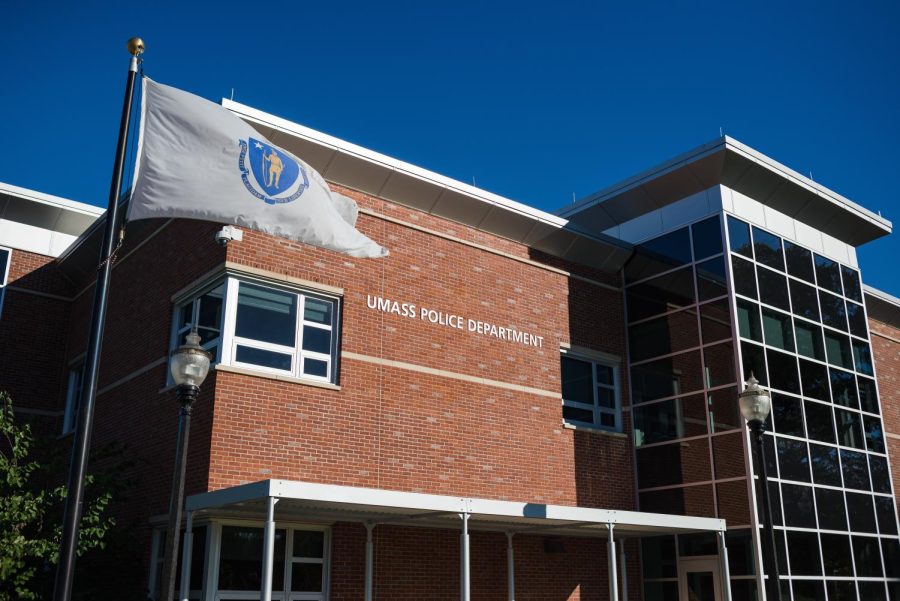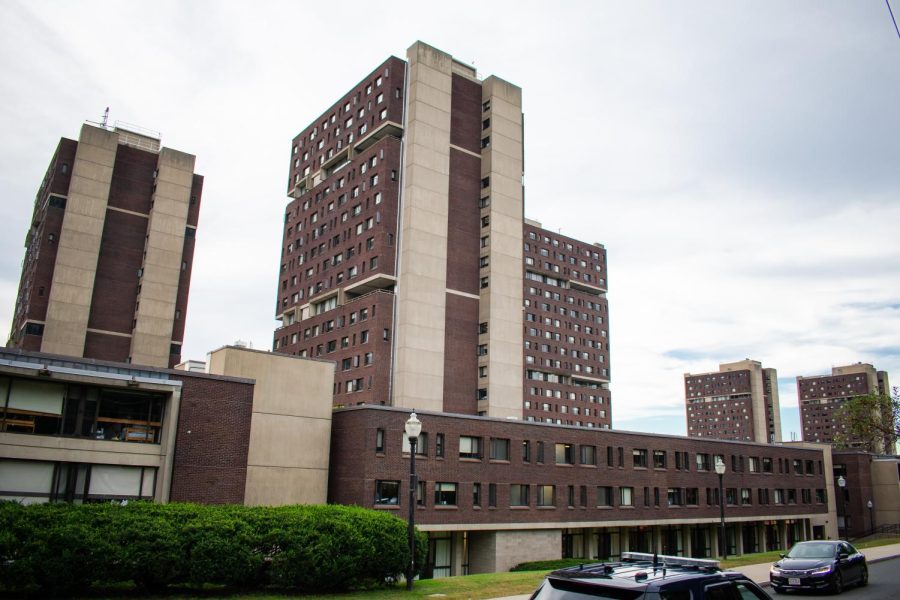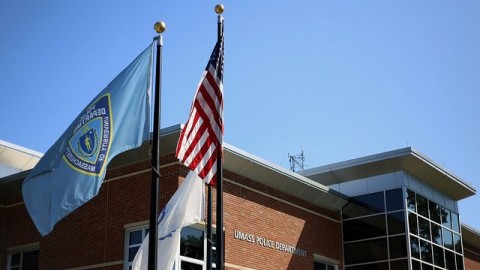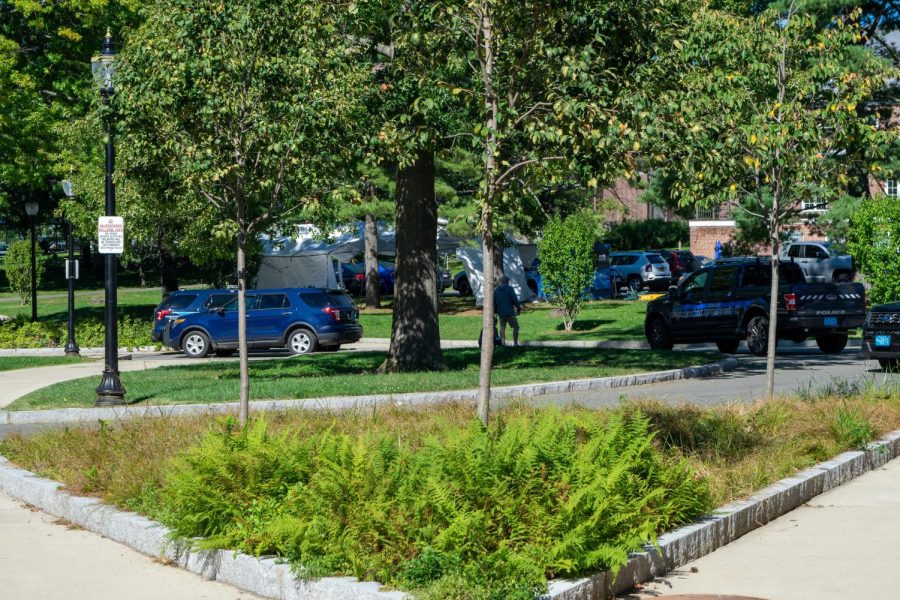
On the heels of a racist message scrawled on the dorm room door this past weekend, a meeting was held for students by the University of Massachusetts National PanHellenic Council to have the opportunity to speak out, not only about the incident, but also about the general feeling of race relations on campus.
One point that was brought up throughout the meeting was first mentioned by Durryle Brooks, who said, “I don’t think I’ve ever seen this many people of color gathered together.”
This was touched upon in several students’ statements to those in attendance.
The meeting was split into two sections. The first part allowed students to vent and talk about personal experiences with racial disparity, addressing both Chancellor Kumble Subbaswamy and Vice Chancellor of Student Affairs Enku Gelaye. The second part focused on suggestions those who attended the meeting made in regards to making the campus community more racially aware.
“I think it’s time to talk about such a topic. A topic that’s so manifested in where we live. We live under an illusion that it’s in the past, but it’s 2014, and it’s still huge. We’ve pushed it under the rug. It’s time to dig it up and deal with it,” said Elkhansaa Elguenaoui, a junior.
Shianne Grace, a junior shared a similar sentiment to Elguenaoui.
“I felt disappointed when I found out,” she said. “I think so highly of UMass, and to see something like that is unexpected. I felt let down there are still people like that.”
The Chancellor spoke, saying his first feeling when he heard of the incident was being disheartened.
“I want to believe in the goodness of people. That people can rise above snap judgments. Whenever I see these meaningless, cowardly acts, I feel disheartened, and this is followed by anger. How dare they do this in my community? We have to have the discipline to turn that anger into positive anger, and make the community a better place,” he said.
Subbaswamy said he did not have the answer as to how to prevent this incident in the future, but believes in building a positive community where that kind of behavior will not be acceptable.
The Chancellor continued, saying that because he tries to see the good in people, he was surprised something like this has happened.
One student said, “That’s my door and the other people there. It goes further than vandalism. For centuries, we have never been given a chance. It is not as abstract as it has been made. Ferguson isn’t that far. It’s right here. It’s in Boston. It’s in New York.”
Debora Ferreira, the executive director for equal opportunity and diversity, came forward and talked about her own experiences she had as an undergraduate student.
“What was most hurtful was the fact that the person who was calling me that was my neighbor,” Ferreira said. “We all are being triggered by this. That’s why I do the work I do here on campus.”
Other students talked about the way this incident alerted students on campus.
“You have to rear its ugly head and show what it really is. If it’s racism, call it racism,” said Danielle Laroque, the associate secretary of diversity of the Student Government Association.
The students then divided into several groups to talk about different ideas to bring forward to lessen the racial divide.
Many students felt there should be a greater push toward offering classes about diversity and inequality.
There were some students who felt their classes that fulfilled the diversity requirement lacked the discussion about diversity itself.
“We should go beyond what is required,” a member of the audience said.
Other students looked to the different ways Resident Assistants should be trained.
“I want to support my residents of color and to make them feel comfortable,” one student said.
Jahson Hollett, a junior, said he attended the meeting to hear the full story of what happened. He believed there is no definite way to change a person’s mindset or opinion, but there is a way to educate people.
Francovna Lapointe, a senior who is a part of residential life, also noted Halloween as a time for people to wear racist costumes, and is looking into different ways to stop that.
“If you walk out with a racist costume, you should be stopped,” she said.
Justin Kilian, a freshman, noted the lack of intersections in advertising various things on campus, and in general.
“I see a lot of intersections that are not being recognized. I’m not seeing any queer people of color.
I’m not seeing any disabled people of color. We need to bring intersections to attention,” she said.
Josh Odam, a survivor of the racist graffiti, stepped forward as well during the meeting.
“I personally am not a victim. I am a survivor. People have tried to shake me before. Better folks have tried, and better folks have failed. We can’t let one individual win. Anger and hate are cheap emotions. We’re not going to put up with that. I work too hard to put up with that shit. I’m going to work to make sure this shit won’t happen again.”
Catherine Ferris can be reached at [email protected] and followed on Twitter at @Ca_Ferris2.

















